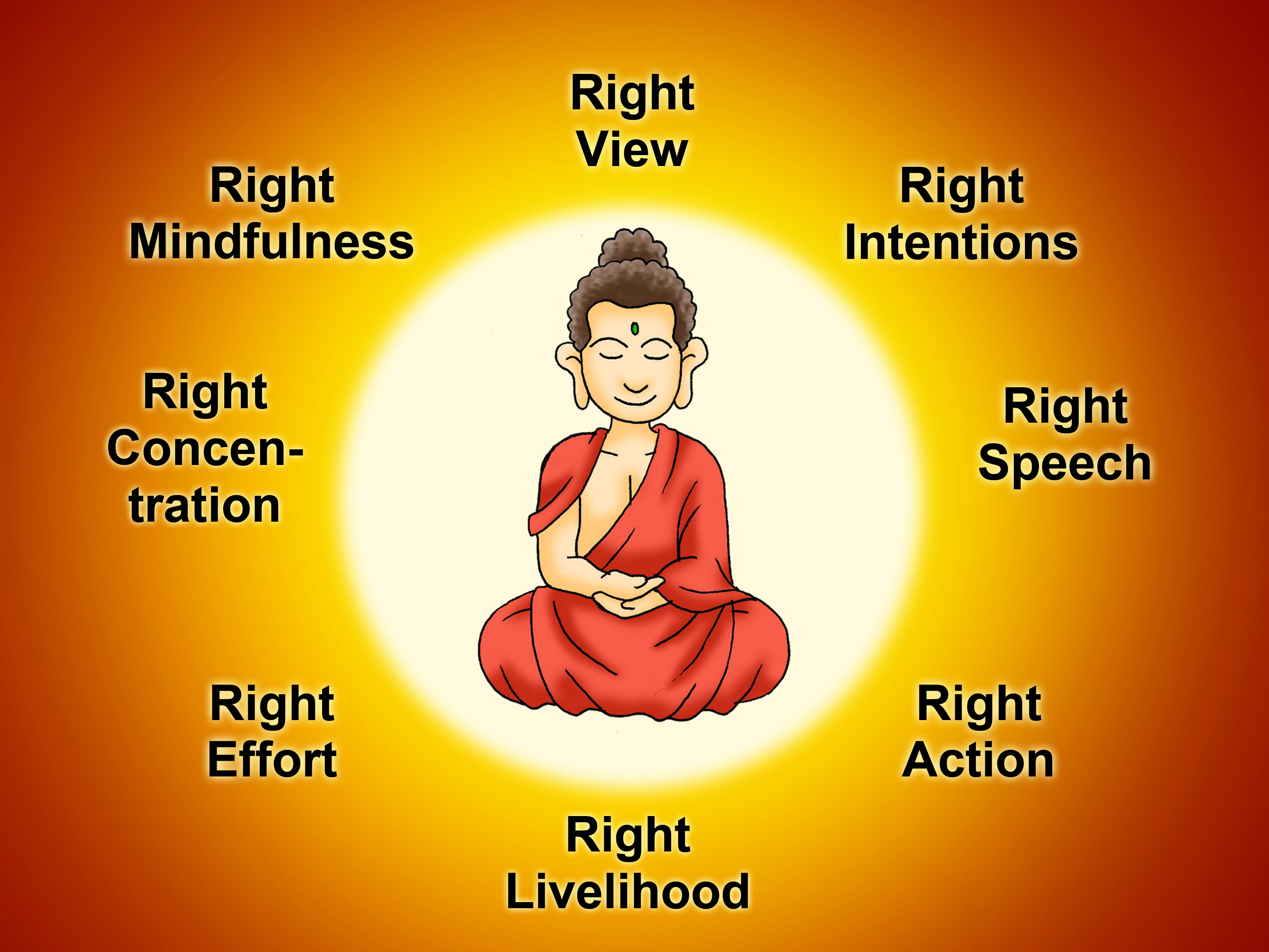Buddhism evolved in India. There were periods in India’s past when Buddhism was dominant in this country. Today less then 1% of India’s population is Buddhist.
Buddhism was established in about 500 BC. The religion began with a prince called Siddhartha Gautama. He belonged to an aristocratic family. As a prince he had lot of wealth. He never left his palace. At some point Siddharta began to leave his palace and behold for the first time poverty, sickness and misery. After seeing this Siddharta lost interest in his spoiled life and left his palace forever and gave his rich personal belongings to the needy. He joined a group of ascetics who were searching for enlightenment. In those days people searching for enlightenment believed that this could be gained only by people who were able to resist their basic needs. These people almost did not eat anything and almost starved themselves to death. Siddharta also adopted this path of searching enlightenment. But at some point he came to a conclusion that this was neither the way towards enlightenment nor the spoiled life he had as a prince was the right path towards enlightenment. According to him the right path was somewhere in the middle and he called it the middle path.
According to Buddhas theory life is a long suffering. The suffering is caused because of the passions people desire to accomplish. The more one desires and the less he accomplishes the more he suffers. People who do not accomplish their desirable passions in their lives will be born again to this life circle which is full of suffering and so will distant themselves from the world of no suffering – Nirvana. To get Nirvana, one has to follow the eight-fold path which are to believe right, desire right, think right, live right, do the right efforts, think the right thoughts, behave right and to do the right meditation.
Buddhism emphasis non-violence.
There are two main doctrines in Buddhism, Mahayana and Hinayana. Mahayana Buddhists believe that the right path of a follower will lead to the redemption of all human beings. The Hinayana ones believe that each person is responsible for his own fate.


 Français
Français